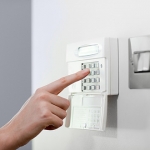Spring Is Here…and So Is Your Flooding Risk

Everything melts very quickly in this season leaving large puddles of water everywhere. This rapid increase in our ground water also increases our flooding risk. We want to remind you that overland flooding, as well as the seepage of water into your dwelling, is not covered by your home policy. We recommend doing everything in your power to prevent that water from entering your dwelling and basement. This could be everything from diverting the water away from your house to filling in any cracks in your basement.
If water is already getting in your basement then take all measures you can to prevent further damage. Lift everything off of the basement floor and move it to a safer location. Be prepared to quickly clean up any water that enters your dwelling.
Sewer backup is different than flooding and is available as an endorsement on your policy. This covers you for the sudden back up, accidental discharge or escape or overflow of water or sewage from a sewer, sump, or septic tank.
Even if you have sewer backup coverage on your policy we do recommend preparing yourself for our spring and summer storms. It’s a good idea to do some yard clean up and make sure all sidewalks and pathways are clear of debris. This way there is nothing inhibiting water from draining away from your property. You can help prepare your home for rainstorms by ensuring your downspouts are down and placed 6-8 feet away from the house. It is best if the water drains out in the yard and does not pool up against your foundation. If your downspouts drain directly into the basement sewer drain we highly recommend removing them and placing them to drain outside of the dwelling to decrease your sewer backup risk.
During a rainstorm it is very easy to have a sewer backup claim. We get these big storms every year and the heavy rain falls often result in numerous sewer backup claims. We wanted to let you know that it is very important that you Do Not run water during those heavy rainfalls. Doing laundry, dishes, running the shower or dishwasher and flushing the toilet could cause the sewer line to get overloaded with water, which in turn causes the sewage to back up into your home.
A recommended sewer backup preventative measure is a mainline backwater valve. This has a flapper which will be pushed up if anything comes back up your sewer lines from the city sewer. Once the flapper is pushed up you must realize that nothing will come any further into your house as long as that flapper remains closed. If you were to have a shower, use the toilet, run the dishwasher, wash the dishes or do some laundry that flapper can be pushed open by the water pressure against it. As soon as this flapper is opened sewage can come into your home and cause significant damage to your dwelling.
If you have any questions about flooding and seepage, or if you are unsure what coverage you have in place for sewer backup, please do not hesitate to contact one of our brokers.
Broad Street – (306) 525-0888
Quance Street – (306) 525-0777
Albert Street – (306) 525-0113


